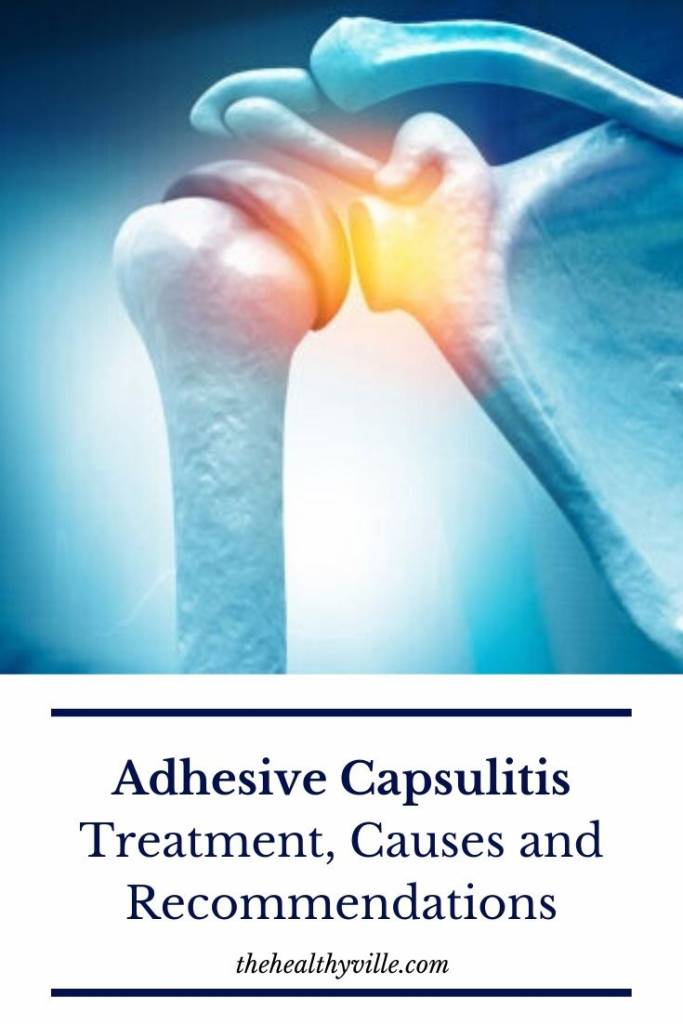Learn the capsulitis treatment options, discover its causes and make sure to do something about it to ease your pain and suffering.
Adhesive capsulitis is a complex shoulder condition. What the cause? What is your treatment? Can you prevent it? Learn it in this article.
Frozen shoulder or ‘adhesive capsulitis’, is a condition characterized by a significant decrease in shoulder movement. In this article we explain what it is, its cause and its treatment.
What is adhesive capsulitis?
The shoulder is a joint formed by bones, ligaments, tendons and synovial fluid. All these structures are ‘encapsulated’ within a connective tissue or capsule. The main task of the shoulder capsule is to protect the joint and facilitate the movement of all the structures that make it up.
When this capsule hardens and becomes thicker, it restricts the movement of bones, ligaments and tendons. This is what we know as frozen shoulder or ‘adhesive capsulitis’.
Adhesive capsulitis usually begins very slowly and has three well-defined phases that, combined, can last up to 3 years:
- Initial / inflammatory phase: lasts from 2 to 9 months. The pain is very intense, especially at night. The limitation of movement begins.
- Intermediate / stiffness phase: lasts from 4 to 12 months. The pain decreases. The shoulder becomes stiff, moving it is more difficult.
- Resolution phase / ’thaw’: the range of motion begins to recover.
Causes
There is no specific cause for this disorder. However, there are several factors that predispose the development of frozen shoulder:
- A period of immobilization: it can happen after a fracture or surgery. Also during recovery from a shoulder injury.
- Systemic pathologies: certain diseases tend to develop adhesive capsulitis, such as:
- Diabetes, especially insulin-dependent or type 1.
- Hyper or hypothyroidism.
- Cardiovascular problems.
- Tuberculosis.
- Parkinson’s.
- Age and sex: people over 40 and, particularly, women.
Adhesive capsulitis treatment
The treatment will depend on the phase you are in. At first, the priority is to reduce pain and maintain the range of motion as much as possible. Next, the priority is to gain the range of motion lost.
The most common adhesive capsulitis treatment options include:
Physiotherapy
In a study with more than 2000 patients with frozen shoulder, it was observed that patients improve by doing mobilizations and exercises. A much smaller percentage improves after doing massage, iontophoresis or ultrasound.
Ideally, the exercises should be combined with other treatments, but that active movement is the main thing. Other physiotherapy techniques include electrotherapy, laser or deep heat. Ultrasound has not been shown to decrease pain or improve the range of motion in the frozen shoulder.
Nonsteroidal anti-inflammatory drugs (NSAIDs)
Doctors usually prescribe them orally or as intra-articular injections, to reduce pain, which allows you to move your shoulder more. This is ideal for the first phase, where you need to decrease the pain but maintain the range of motion. However, this effect only lasts a couple of weeks, with no long-term benefits.
Corticosteroid injections
These injections greatly reduce pain in the short term, allowing you to move your shoulder more. This effect usually lasts a maximum of 6 weeks and is more effective in the first phase.
Surgical treatment for adhesive capsulitis
This is the last step. It is considered only in patients who have not had improvement after a year of conservative treatment and with severe symptoms. If there is improvement during that period, surgery should not be performed.
Conclusion and recommendations
We do not know exactly what causes adhesive capsulitis, but there are factors that predispose to its development. It usually improves naturally, although it takes a long time. Therefore, the treatment aims at making this process as manageable as possible. What offers more benefits and lower cost is to do therapeutic exercise, assisted by the physiotherapist.
Therefore, if you suspect having a frozen shoulder, consult your primary care doctor for an evaluation and treatment plan according to your symptoms.
Don’t forget to SHARE capsulitis treatment with your friends and family on your social networks!

